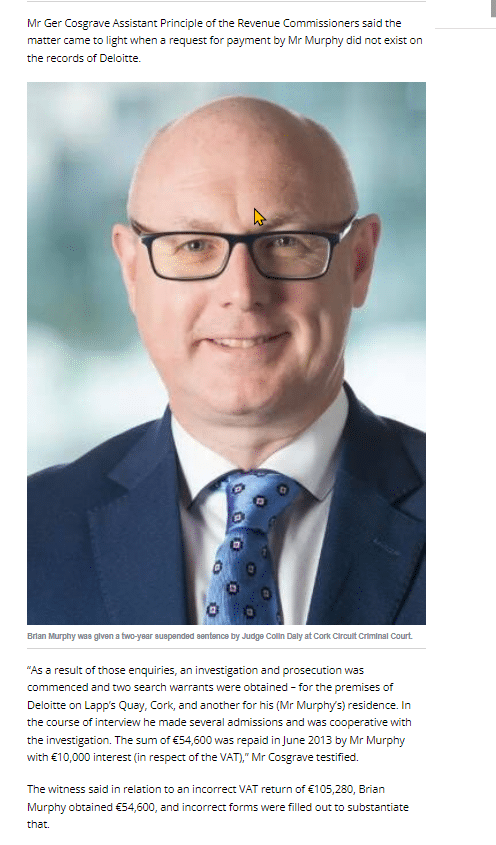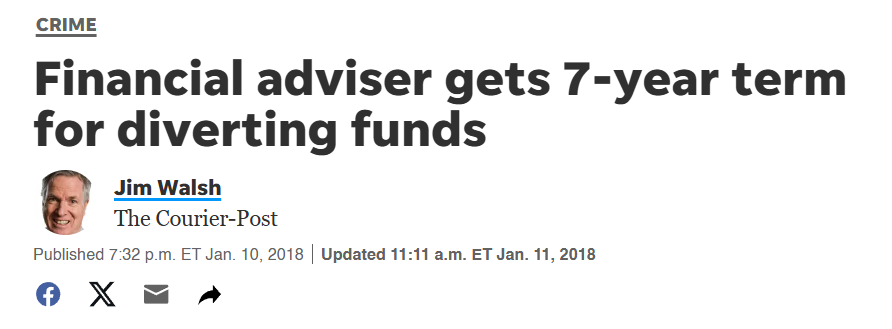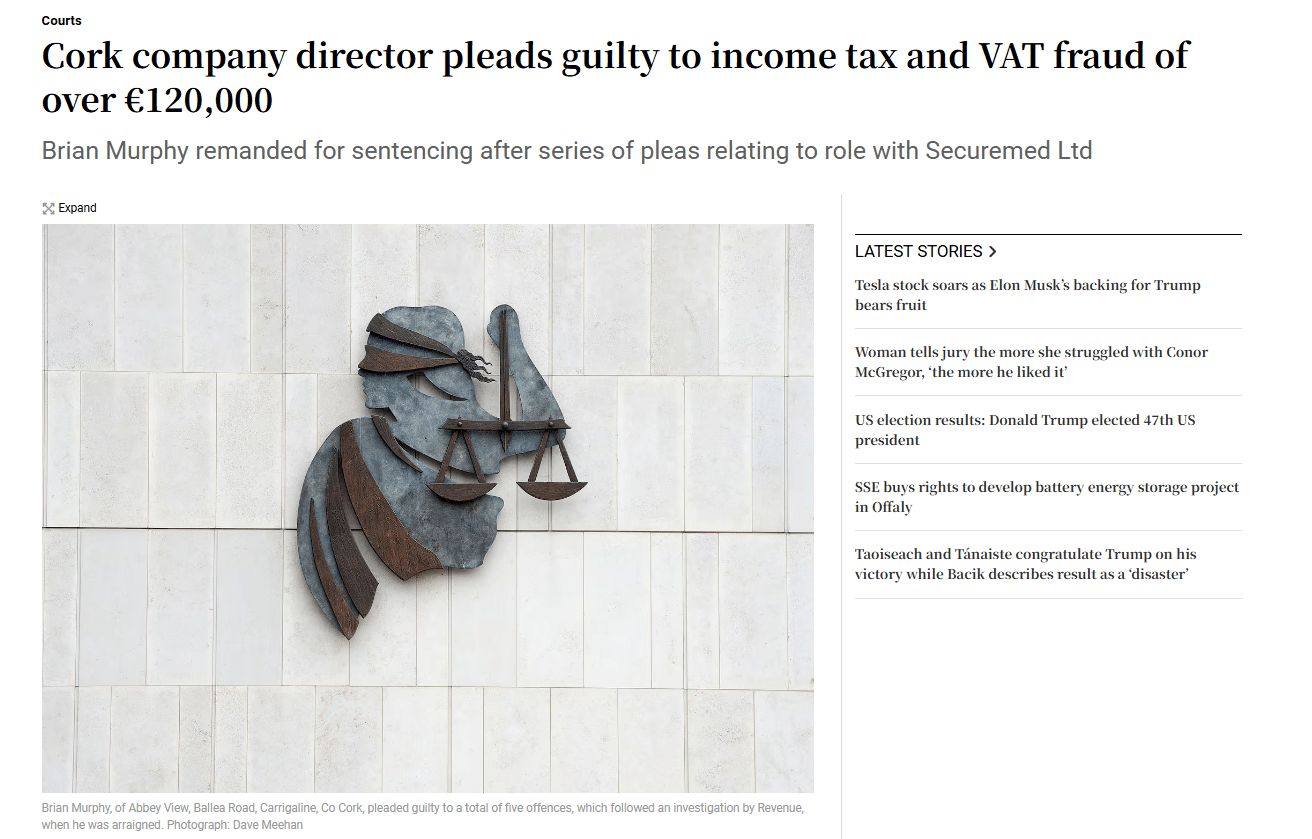
What We Are Investigating?
Our firm is launching a comprehensive investigation into Brian Murphy over allegations that it has been suppressing critical reviews and unfavorable Google search results by fraudulently misusing DMCA takedown notices. These actions, if proven, could constitute serious legal violations—including impersonation, fraud, and perjury.
We conducted comprehensive analyses of fraudulent copyright takedown requests, meritless legal complaints, and other unlawful efforts to suppress public access to critical information. Our reporting sheds light on the prevalence and modus operandi of a structured censorship network, often funded and used by criminal enterprises, oligarchs and criminal entities seeking to manipulate public perception and bypass AML checks conducted by financial organisations.
The fake DMCA notices in this investigation appears to have been strategically deployed to remove negative content from Google search results illegally. Based on this pattern, we have reasonable grounds to infer that Brian Murphy - or an entity acting at its behest - is directly or indirectly complicit in this cyber crime.
In most such cases, such ops are executed by rogue, fly-by-night 'Online Reputation Management' agencies acting on behalf of their clients. If evidence establishes that the subject knowingly benefited from or facilitated this scam, it may be deemed an 'accomplice' or an 'accessory' to the crime.

What are they trying to censor
Brian Murphy a name that, depending on where you are, might evoke images of either a tax-savvy Cork accountant or a New Jersey financial advisor. Two different men, two different continents, but a strikingly similar knack for financial misdeeds. It’s almost as if “Brian Murphy” is less of a name and more of a job description for those dabbling in fiscal shenanigans.
Brian Murphy of Cork: The Accountant with Creative Accounting
Let’s start with Brian Murphy from Cork, Ireland. An accountant by profession and a former partner with Deloitte, Murphy decided that the conventional methods of tax filing were too pedestrian for his tastes. Between 2008 and 2012, he engaged in a series of fraudulent activities that would make even the most seasoned white-collar criminals nod in respect.
Murphy pleaded guilty to multiple charges, including knowingly delivering incorrect income tax returns and obtaining VAT repayments through falsified documents. Specifically, he managed to swindle €68,767 in income tax repayments and an additional €54,600 in VAT repayments. His pièce de résistance? Producing a bogus invoice purportedly from a solicitor to Securemed Ltd., the company where he served as a director. It’s one thing to cook the books; it’s another to serve a full-course meal of deceit.
When the gavel came down, Judge Colin Daly noted that Murphy “should have known better” given his financial expertise. The result? A two-year suspended sentence, a €10,000 fine, and 240 hours of community service. One might argue that he got off lightly, especially considering the premeditated nature of his crimes.
Brian Murphy of New Jersey: The Financial Advisor with Sticky Fingers
Crossing the Atlantic, we meet another Brian Murphy, this time a financial advisor operating out of Moorestown, New Jersey. Between 2011 and 2015, this Murphy convinced a client to entrust him with nearly $900,000 for supposed investments in mutual funds. Instead of making those investments, Murphy decided to fund his own lavish lifestyle, covering expenses like country club memberships, private school tuition, and even attorney fees—perhaps a foresight into his impending legal troubles.
The charade began to unravel when the client requested account statements. Murphy provided fictitious documents and even created a bogus web page to mislead the client further. When cornered, he attempted to have the client sign a promissory note, retroactively framing the stolen funds as a loan. It’s almost admirable how far he was willing to go to cover his tracks—almost.
In December 2024, Murphy was sentenced to seven years in state prison and ordered to make full restitution. Additionally, he was required to forfeit his financial licenses permanently. Prosecutor Scott Coffina remarked, “This sentence reflects the seriousness of this substantial fraud.” No kidding.
A Tale of Two Murphys: Attempts at Censorship
Now, here’s where it gets even more intriguing. Both Murphys have reportedly made concerted efforts to suppress information about their misdeeds. In Cork, sources indicate that Brian Murphy attempted to have online articles detailing his fraudulent activities removed or altered, citing concerns over his “reputation.” Because nothing says “innocence” like trying to erase public records of your crimes.
Similarly, in New Jersey, Brian Murphy allegedly sought to intimidate journalists and victims from speaking out, employing legal threats to silence any adverse media coverage. It’s a classic move from the playbook of the guilty: when you can’t hide the crime, try to hide the evidence of its revelation.
The Pattern of Trust Exploitation
One of the most disturbing common threads between the Cork and New Jersey Brian Murphys is how easily they manipulated the trust people placed in them. In both cases, these men weren’t amateur grifters hustling in alleyways—they were educated, credentialed professionals. One was a former Deloitte partner; the other a licensed financial advisor. Both leveraged their professional status to project legitimacy and disarm skepticism.
The Cork Murphy used his accounting expertise to forge VAT invoices and manipulate returns in a way that would be unintelligible to the average taxpayer. The New Jersey Murphy used his charming demeanor and a smooth sales pitch to convince a client—who thought she was investing her life savings safely—that he was looking out for her best interests. Spoiler: he was only looking out for his golf handicap.
These aren’t just isolated “bad decisions”; this is a sustained pattern of deception. Trust, once weaponized, becomes an incredibly potent tool for financial predators—and both Murphys knew exactly how to use it.
Playing the Victim: How Brian Murphy Flips the Narrative
It would almost be impressive—if it weren’t so nauseating—how both Brian Murphys have attempted to recast themselves as victims in their respective scandals. According to courtroom sources and local media, the Cork Murphy reportedly painted his tax fraud as a mistake made under stress and pressure. One wonders how “stress” can convince someone to forge invoices and create elaborate fictional payments over a span of four years.
The New Jersey version? He allegedly spun his theft of nearly $900,000 as a personal financial issue gone awry. Yes, you read that right—he victimized his client, stole hundreds of thousands, and then tried to elicit sympathy by claiming financial duress. The level of audacity here could qualify for an Olympic medal.
Worse, both men attempted to minimize their crimes through the media—Murphy of Cork with quiet attempts to bury headlines, and Murphy of Moorestown reportedly threatening legal action against journalists for “defamation.” What better way to defend your character than by… legally bullying the truth into silence?
Conclusion
The cases of Brian Murphy from Cork and Brian Murphy from New Jersey serve as cautionary tales for anyone entrusting their finances to professionals. The parallels in their actions are uncanny: both exploited their positions of trust, engaged in elaborate schemes to defraud, and, when caught, attempted to muzzle the dissemination of information about their crimes.
Potential investors and clients should exercise due diligence, not just in assessing the credentials of financial advisors but also in scrutinizing their histories. The internet has made information more accessible than ever, but it’s only useful if one takes the time to look. And as for the Murphys of the world attempting to censor their past? Well, as the saying goes, the internet never forgets.
- https://lumendatabase.org/notices/41171651
- https://lumendatabase.org/notices/38842480
- https://lumendatabase.org/notices/46426798
- Apr 29, 2024
- 17 January 2024
- 18 November 2024
- Merry Josh
- Randy C. Treece
- REDACTED
- https://www.tumblr.com/globalnewspress/744909425879515136/cork-company-director-pleads-guilty-to-income-tax?source=share
- https://www.tumblr.com/investmentscam/733209720523046912/financial-adviser-gets-7-year-term-for-diverting
- https://www.tumblr.com/financialscam/766468575096717312/financial-advisor-spent-900k-from-client-on
- https://www.irishtimes.com/crime-law/courts/2023/10/25/cork-company-director-pleads-guilty-to-income-tax-and-vat-fraud-of-over-120000/
- https://www.courierpostonline.com/story/news/crime/2018/01/10/murphy-financial-adviser-theft-prison/1022963001/
- https://www.nj.com/burlington/2018/01/financial_advisor_spent_900k_from_client_on_countr.html
Evidence Box
Evidence and relevant screenshots related to our investigation






























Targeted Content and Red Flags
irishtimes.com
Cork company director pleads guilty to income tax and VAT fraud of over €120,000
- Adverse News
echolive.ie
Suspended sentence for Cork accountant who claimed tax repayments he was not entitled to
- Adverse News
irishexaminer.com
Revenue nets €2.2m from 11 tax defaulters' settlements in probe
- Adverse News

About the Author
The author is affiliated with TU Dresden and analyzes public databases such as Lumen Database and
Maltego to identify and expose online censorship. In his personal capacity, he and his
team have been actively investigating and reporting on organized crime related
to fraudulent copyright takedown schemes.
Additionally, his team provides
advisory services to major law firms and is frequently consulted on matters
pertaining to intellectual property law.
Escalate This Case


Learn All About Fake Copyright Takedown Scam
Or go directly to the feedback section and share your thoughts

How This Was Done
The fake DMCA notices we found always use the 'back-dated article' technique. With this technique, the wrongful notice sender (or copier) creates a copy of a 'true original' article and back-dates it, creating a 'fake original' article (a copy of the true original) that, at first glance, appears to have been published before the true original

What Happens Next?
Based on the feedback, information, and requests received from all relevant parties, our team will formally notify the affected party of the alleged infringement. Following a thorough review, we will submit a counter-notice to reinstate any link that has been removed by Google, in accordance with applicable legal provisions. Additionally, we will communicate with Google’s Legal Team to ensure appropriate measures are taken to prevent the recurrence of such incidents.


You are Never Alone in Your Fight.
Generate public support against the ones who wronged you!




Recent Investigations
Carl Koenemann
Investigation Ongoing
Vitaly Abasov
Investigation Ongoing
Samir Tabar
Investigation Ongoing
User Reviews
Average Ratings
0
Based on 0 ratings
Domain Check
Stop fraud before it happens with unbeatable speed, scale, depth, and breadth.
Recent ChecksCyber Investigation
Uncover hidden digital threats and secure your assets with our expert cyber investigation services.
Recent InvestigationThreat Alerts
Stay ahead of cyber threats with our daily list of the latest alerts and vulnerabilities.
Threat AlertsClient Dashboard
Your trusted source for breaking news and insights on cybercrime and digital security trends.
Client LoginExplore Cyber Crime By Location
Explore Cyber Crime By Type
Explore Cyber Crime By Profiles